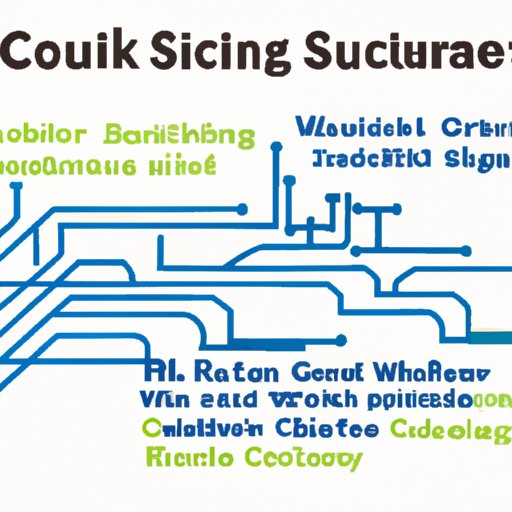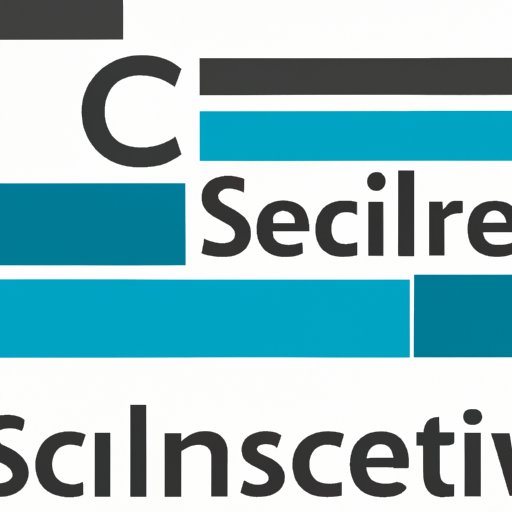Introduction
Computer science is a rapidly growing field with a plethora of job opportunities. A degree in computer science can open the door to exciting careers in software engineering, artificial intelligence, web development, cybersecurity, and more. With so many possibilities, it’s important to understand what classes are included in a computer science degree program and how they prepare students for their chosen path.

Outlining the Requirements for a Computer Science Degree
The requirements for a computer science degree vary by school and program, but most include a set number of credit hours, which typically range from 30-50. These credit hours must come from a combination of prerequisite courses, core curriculum, and electives. In order to be admitted into a computer science program, students must meet certain prerequisites, such as calculus, physics, and programming. Most schools also require that students have a minimum GPA.

Exploring Common Computer Science Courses and Their Purposes
Once admitted, students will begin taking courses specific to the computer science major. These courses may include:
Basics of Programming Languages: Computer science students must become familiar with a variety of programming languages, such as C++, Java, Python, and HTML. This course will provide an introduction to the syntax of various languages, as well as the basics of writing code.
Data Structures and Algorithms: This course covers fundamental concepts of data structures and algorithms, such as arrays, linked lists, trees, and sorting algorithms. Students learn how to design, implement, and analyze efficient algorithms.
Operating Systems: This course introduces students to the basics of operating systems, such as memory management, process scheduling, and deadlock prevention. Students will learn how to design and develop efficient operating systems.
Networking and Security: Networking and security courses teach students how to protect networks from malicious attacks. Topics covered include cryptography, network protocols, firewalls, and intrusion detection systems.
Discrete Mathematics: Discrete mathematics is an important part of computer science, as it provides the mathematical foundation for the study of algorithms. This course covers topics such as logic, set theory, probability, and graph theory.
Software Engineering: Software engineering courses focus on the design and development of software systems. Students learn how to create software that is reliable, secure, and efficient.
Artificial Intelligence: Artificial intelligence courses introduce students to the fundamentals of AI, such as machine learning, natural language processing, and robotics. Students learn how to design and develop intelligent systems.
Examining the Core Curriculum of Computer Science Programs
In addition to the courses listed above, computer science programs typically require a core curriculum of courses that cover the fundamentals of computer science. These courses may include:
Introductory Courses: These courses provide an overview of the fundamentals of computer science, such as computer architecture, data structures, and algorithms. They also introduce students to programming languages and software engineering.
Advanced Topics: Advanced topics courses delve deeper into specific areas of computer science, such as compilers, database systems, computer graphics, and artificial intelligence. These courses provide an in-depth look at the theories and technologies used in the field.
Reviewing Elective Options for Computer Science Majors
Most computer science programs offer a variety of elective courses that allow students to explore different areas of the field. Popular electives include:
Database Management: Database management courses teach students how to design, implement, and manage databases. Students learn about database query languages, data normalization, and database security.
Web Design and Development: Web design and development courses focus on the principles of designing and developing websites. Students learn how to create user-friendly interfaces and how to integrate databases into web applications.
Mobile Application Development: Mobile application development courses teach students how to design and develop mobile applications for smartphones and tablets. Topics covered include user interface design, cross-platform development, and mobile security.
Computer Graphics and Animation: Computer graphics and animation courses introduce students to the principles of 3D modeling, rendering, and animation. Students learn how to create realistic images and animations using computer graphics software.
Game Design and Development: Game design and development courses teach students how to create video games. Topics covered include game mechanics, game engines, and game scripting.

Highlighting Specialized Computer Science Tracks
Many computer science programs offer specialized tracks that allow students to focus on a particular area of interest. Popular tracks include:
Robotics: Robotics courses teach students how to design and develop autonomous robots. Topics covered include motion planning, sensor fusion, and machine vision.
Natural Language Processing: Natural language processing courses focus on the use of computers to process human language. Students learn how to build systems that can understand and generate natural language.
Machine Learning: Machine learning courses teach students how to design and develop systems that can learn from data. Topics covered include supervised and unsupervised learning, deep learning, and reinforcement learning.
Cybersecurity: Cybersecurity courses teach students how to protect computer systems from malicious attacks. Topics covered include network security, malware analysis, and digital forensics.

Investigating Graduate Programs in Computer Science
For those who want to pursue a career in computer science, there are several graduate programs available. Master’s degrees in computer science typically require two to three years of study and focus on advanced topics such as distributed systems, computer networks, and machine learning. Doctoral programs typically take four to five years of study and focus on research in a particular area of computer science.
Assessing Career Opportunities with a Computer Science Degree
A degree in computer science can lead to a wide range of career opportunities. Common job titles include software engineer, web developer, database administrator, security analyst, and system administrator. Computer science graduates can find employment in industries such as technology, finance, healthcare, education, and government. According to the Bureau of Labor Statistics, the median salary for computer and information technology occupations is $86,320.
Conclusion
A degree in computer science is an excellent way to launch a successful career in the field. The classes required for a computer science degree vary by school and program, but typically include prerequisite courses, core curriculum, and electives. Students can also choose to specialize in a particular area of interest, such as robotics, natural language processing, or machine learning. With a computer science degree, graduates can pursue a variety of career paths and enjoy competitive salaries.
Title
(Note: Is this article not meeting your expectations? Do you have knowledge or insights to share? Unlock new opportunities and expand your reach by joining our authors team. Click Registration to join us and share your expertise with our readers.)
